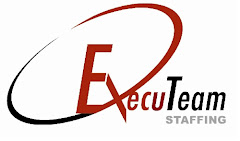
A job interview is a screening tool. For you, it's an opportunity to assess whether or not you want to work for a company. For the employer, it's an opportunity to decide whether or not they want to hire you. Both sides are looking for a match.
You can ace an interview and win the job you want even in this economy; even with the competition that wants the same job as you. You will have to work hard, but it can be done. Know that the work you do upfront and afterwards will make the "during" (while you are interviewing) much easier for you.
Here's a checklist to help you:
I. PREPARE BEFOREHAND
•Do your homework and find out who you will be interviewing with. You are looking for job title, responsibilities, accomplishments, as well as anything else that impresses you about this person.
•Know as much about the company as possible. Get on their web site and memorize their products and services. Look at their press release section for news. Talk to a few people about what they know. Look online for comments, discussions, blogs, forums, and additional insights. - Don't just look for good news. Look for challenges that the company is facing, and think about how you might contribute to their success.
•Write out the top 3 points you want to make sure you get across.
•Write down what makes you different or unique.
•Have a story/example for each bullet on the job description and each bullet in you resume. Include the challenges you were up against, the action you took to solve these challenges, and the results you achieved.
•Write down answers to questions such as your strengths, weaknesses, where you want to be in the future, etc. The questions that employers don't always feel comfortable asking. The same questions you don't always feel comfortable answering. Nevertheless, expect to be asked these questions anyway.
•Write down the answers to the questions you don't want to be asked. If you have a gap in your resume, have a good response for when you are asked about it. If you were fired, be prepared to tell the employer why with a positive spin. Don't shy away from these questions and hope they won't be asked. Expect them to be posed to you and have your answers mapped out and ready to go.
•Write down questions to ask the interviewer; three to five should do. Questions like, "What are you looking for in a candidate?" "What keeps you up at night?" "What's the biggest challenge you are facing right now?" These questions may be answered during the interview, and other questions may come up as the discussion progresses, but these questions will give you a place to start.
•Write down an introduction; an opener that says who you are and what you do. Include your past title, the type of work you have been doing, why you are excited to be interviewing with this company.
II. DURING THE INTERVIEW
•Be upbeat, passionate, and excited to be there.
•Use your prepared introduction and introduce yourself.
•Right after your introduction; say something flattering to the interviewer. Reveal what you like about the person or the company. Include what impresses you the most. Sincere flattery starts the interview off in a positive way.
•Answer questions and ask them. Remember, it's a two way conversation, and an opportunity for both parties to see if there is a match. Don't forget to listen and let the interviewer talk.
•Make sure you cover anything that was not discussed in the interview before you leave. For example, did you cover your 3 points? Did you tell the interviewer what makes you different? Did you handle all objections properly? Did you ask the questions you wanted to ask? Cover this now; afterwards may be too late.
•Tell the interviewer again why you want the job.
•Ask what the hiring process is, and when you can follow up with them again.
III. AFTER THE INTERVIEW
•Send a thank-you note. Email one version and also send a handwritten version. Thank you cards work well here.
•Include in your email anything you left out during the interview. Add credibility to your email by mentioning something specific the interviewer said that impressed you.
•If you promised to follow up on a specific day and time, keep that promise.
•Continue interviewing. No matter how great an interview went, no matter how many people told you that you are "the one," you do not have the job until you have formally been given a job offer in writing. Don't let everything ride on one job. Keep going until you are officially employed.
So, what do you say? You only have one life to live, so it might as well be a life you love!
- Deborah Brown-Volkman
From www.net-temps.com




No comments:
Post a Comment